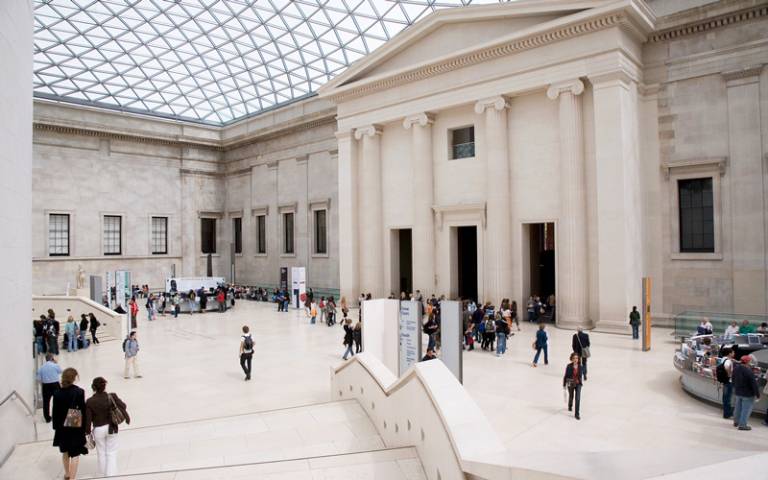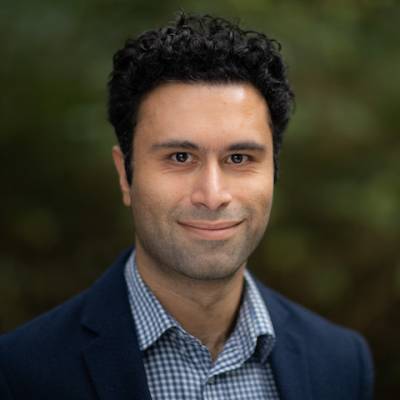Listening to the Crowd: Data Science to Understand the British Museum's Visitors | Dr Taha Yasseri
21 November 2018, 5:00 pm–6:00 pm

Our sixth seminar of the autumn term will be delivered by Dr Taha Yasseri of the Oxford Internet Institute on the topic "Listening to the Crowd: Data Science to Understand the British Museum's Visitors".
This event is free.
Event Information
Open to
- All
Availability
- Yes
Cost
- Free
Organiser
-
Ana Basiri
Location
-
G03 Lecture Theatre26 Bedford WayLondonWC1H 0DSUnited Kingdom
There is more to The British Museum than Egyptian mummies and the Rosetta Stone - more than 6 million people walk through the doors each year, travelling from every corner of the globe to see the Museum’s collection and get a better understanding of their shared histories. Those visitors offer us a unique test bed for data science and real world testing at scale.
In order to address some of the challenges of welcoming such a large number of visitors, The British Museum is constantly gathering feedback and information about the visiting experience. Research about visitors informs decisions made by teams around the Museum and help the Museum evolve along with its audience.
The tools at the Museum’s disposal include direct feedback channels (such as email or comment cards), “intelligent counting data”, wifi data, audio guide data, social media conversations, satisfaction surveys, on-site observation and conversations on online review sites such as TripAdvisor. TripAdvisor reviews are one of the largest and richest qualitative datasets the Museum has access to.
On average, over 1,000 visitors review their visit on the platform every month. These reviews are written in over 10 languages by visitors from all parts of the world, and historical data stretches back over two years. In these comments, visitors discuss the positive and negative aspects of their visits, make recommendations to others, and rate their satisfaction. The data set is an opportunity for the Museum to learn more about its visitors, to understand what the most talked about topics are, and which factors have the biggest impact on satisfaction.
The audio guide data captures the journey of 42,000 visitors between 2016-2017 (10% of all audio guide visitors within this time). This allows us to visualise the routes that visitors make throughout their journey, identify crowding pressure points throughout the day, and find new ways to categorise visitors based on their behaviour.
This research project aims to dig into a rich set of qualitative data, uncovering actionable insights which will have a real impact on the Museum. It is our hope that the research will have an immediate and tangible effect and will help the organisation improve the visiting experience currently on offer at the Museum. The Museum is currently undergoing pivotal strategic change, and the insights will also feed into future iterations of the display and audience strategies.
As far as we know, The British Museum is the first institution of its kind to take a programmatic approach to this kind of qualitative data. This pioneering research could potentially impact the rest of the cultural sector and show the way to a new method of evaluation and visitor research.
About the Speaker
Dr Taha Yasseri
Associate Professor at Oxford Internet Institute, University of Oxford
Taha Yasseri is a Senior Research Fellow (Associate Professor) in Computational Social Science at the Oxford Internet Institute, University of Oxford, a Faculty Fellow at the Alan Turing Institute for Data Science, and a Research Fellow in Humanities and Social Sciences at Wolfson College, University of Oxford. Dr Yasseri graduated from the Department of Physics at the Sharif University of Technology, Tehran, Iran, in 2005, where he also obtained his MSc in 2006, working on localization in scale free complex networks. In 2007, he moved to the Institute of Theoretical Physics at the University of Göttingen, Germany, where he completed his PhD in Complex Systems Physics in 2010. Prior to coming to Oxford, he spent two years as a Postdoctoral Researcher at the Budapest University of Technology and Economics.

 Close
Close

